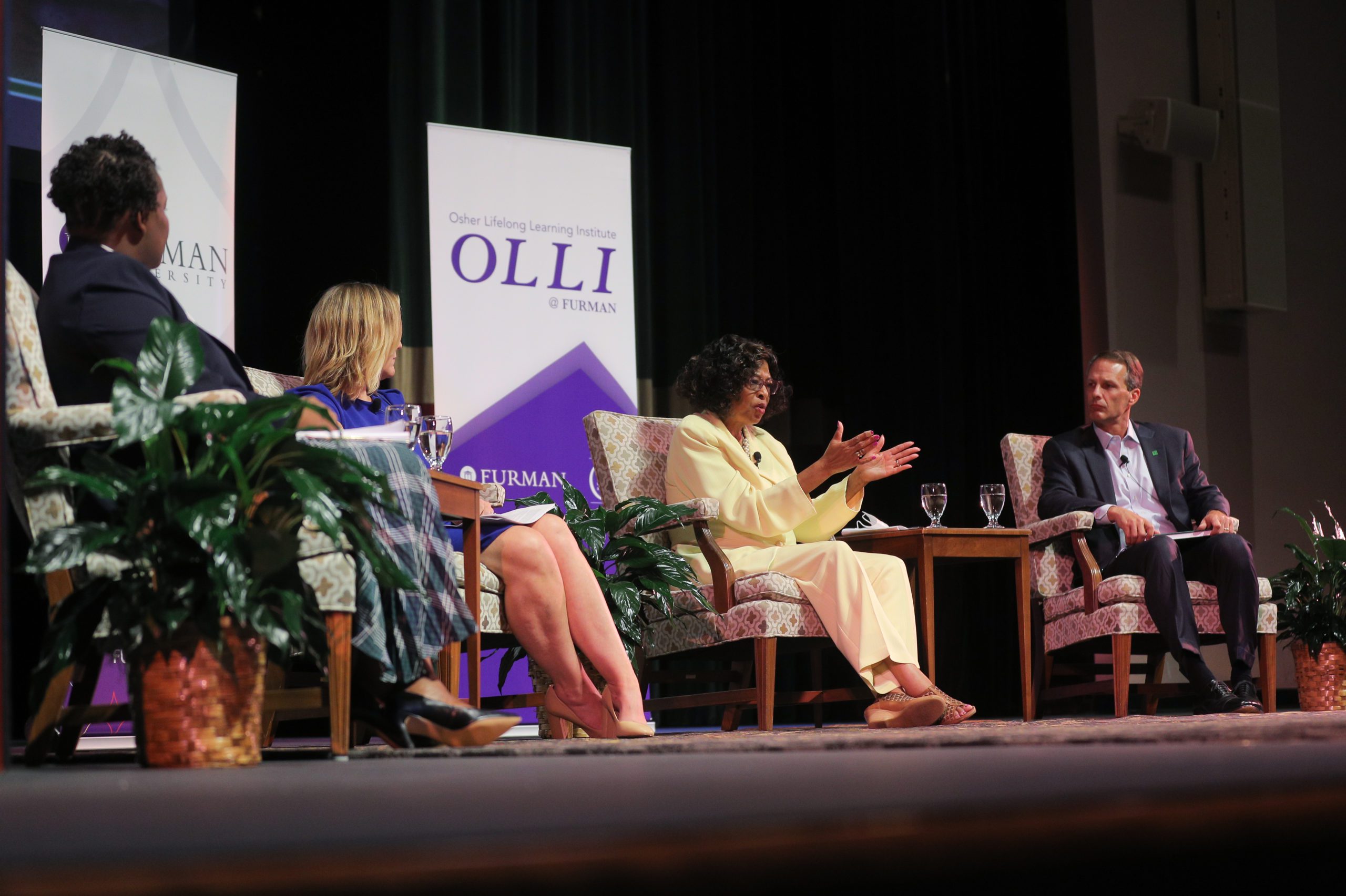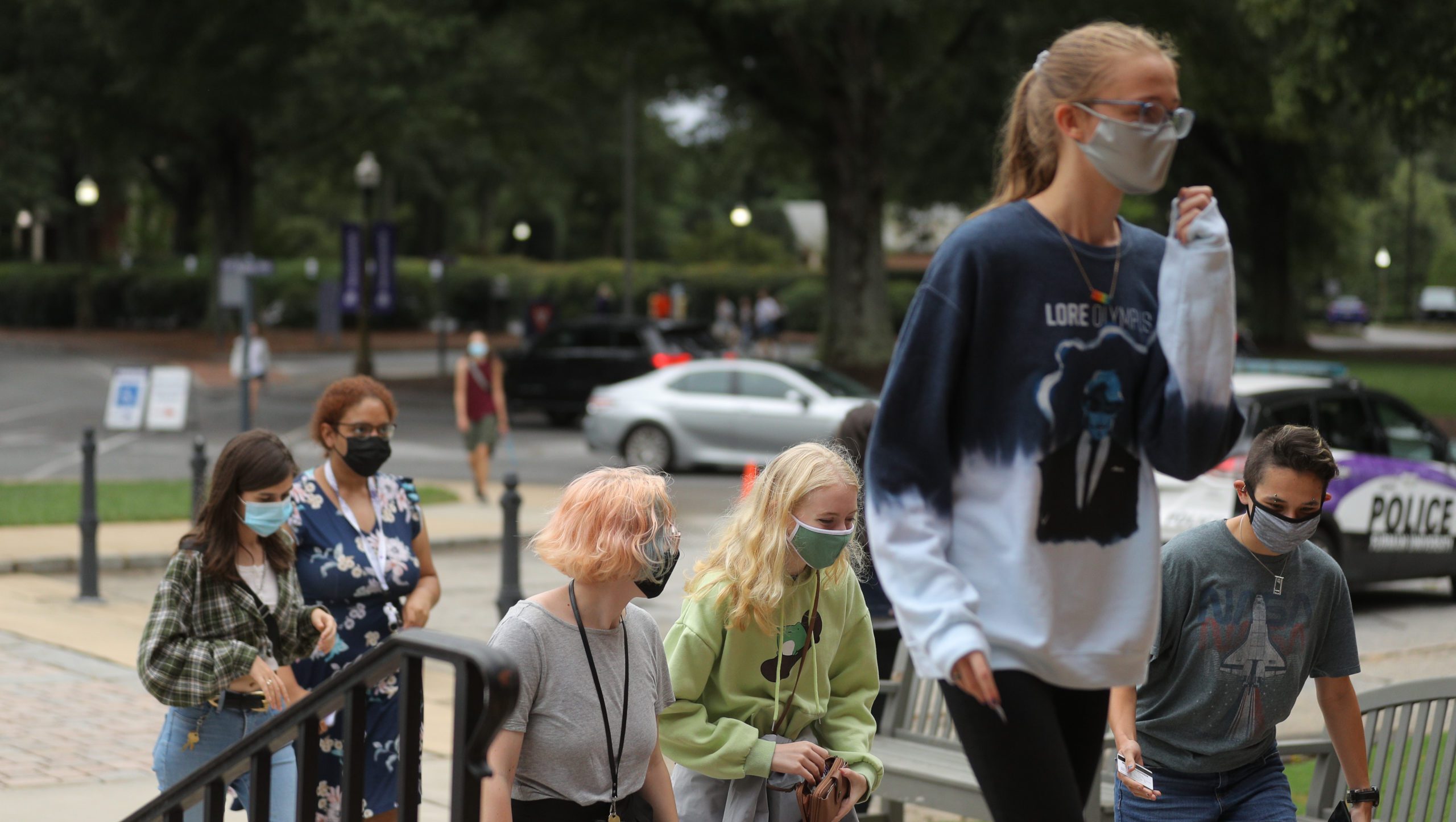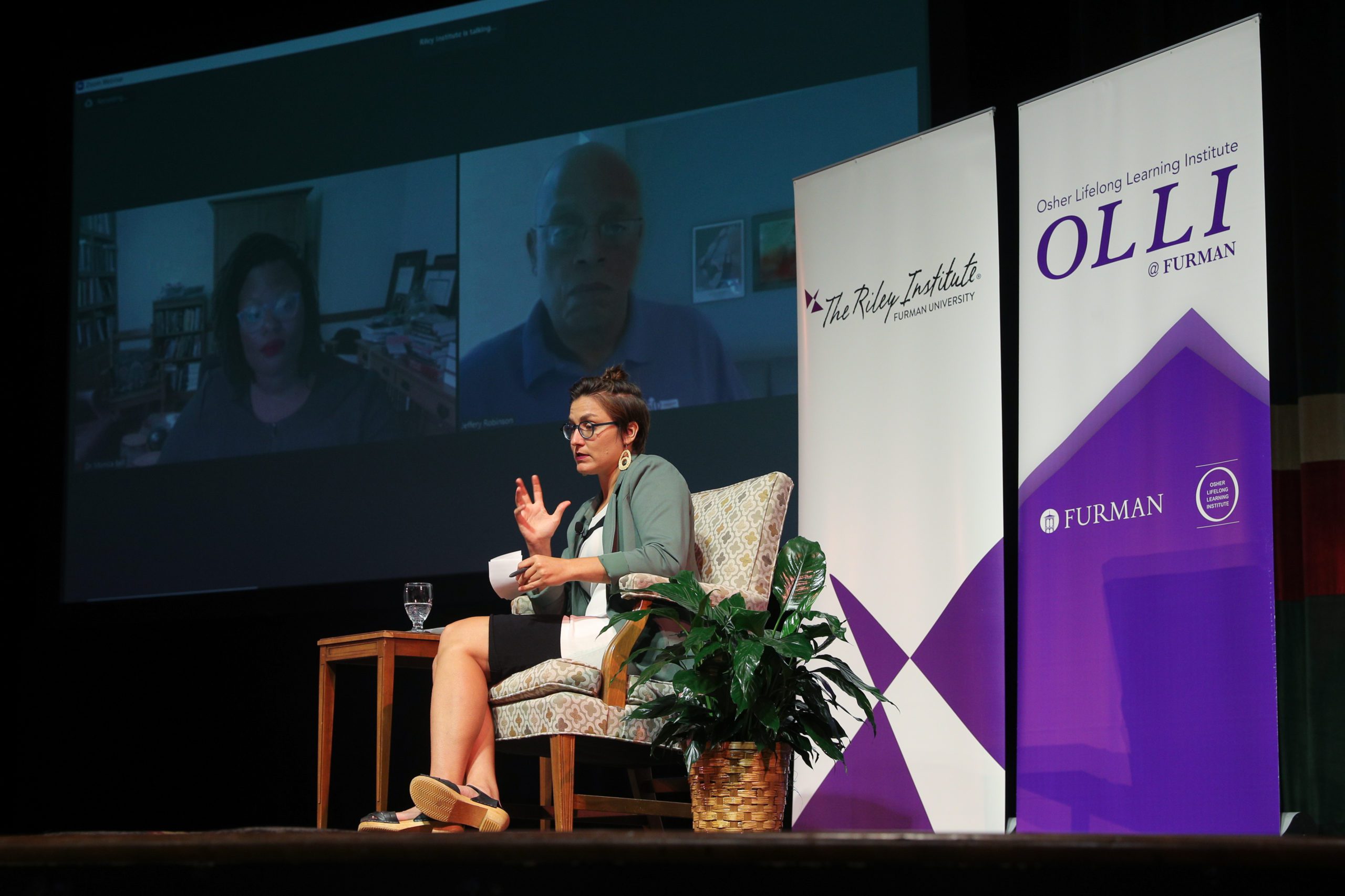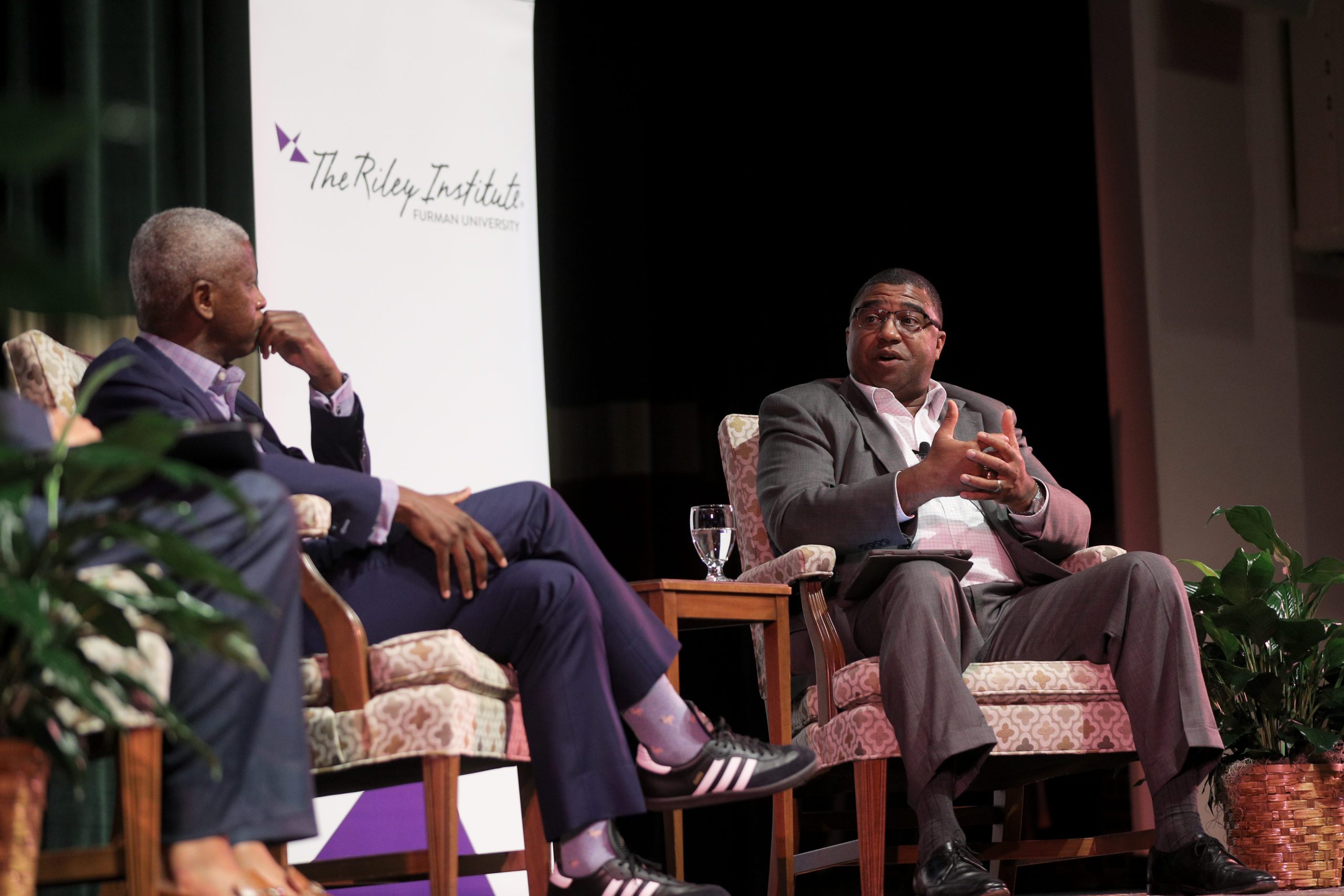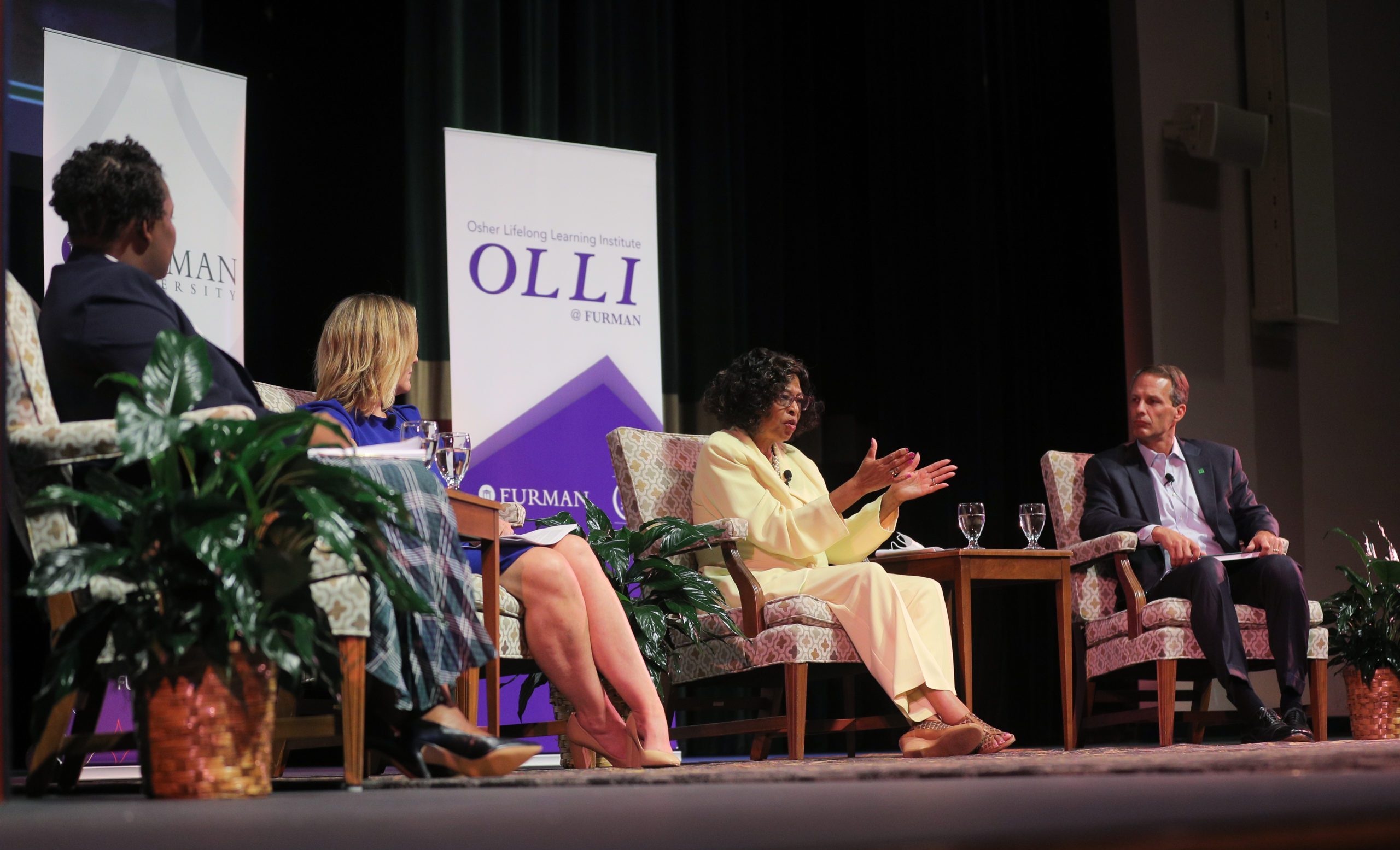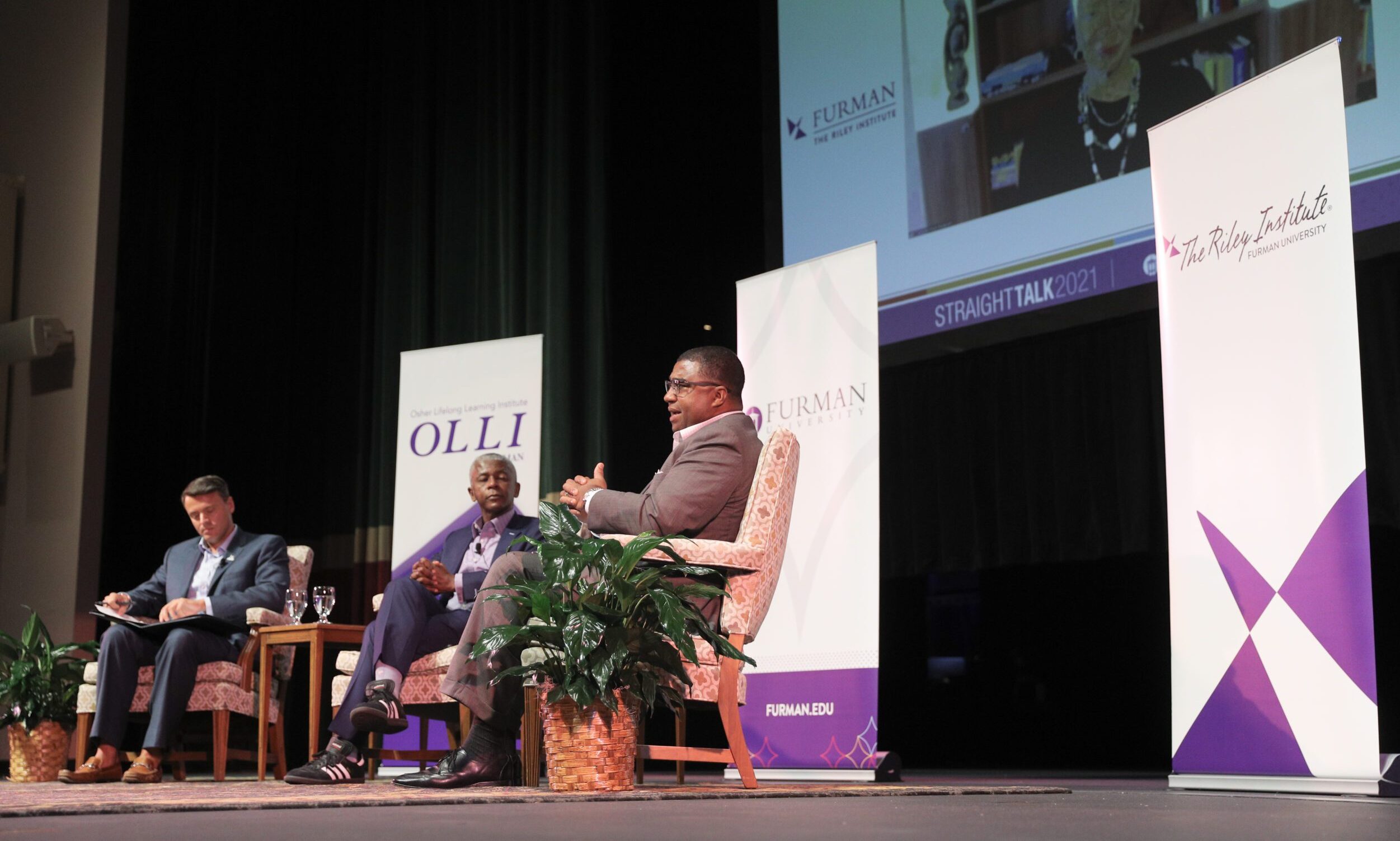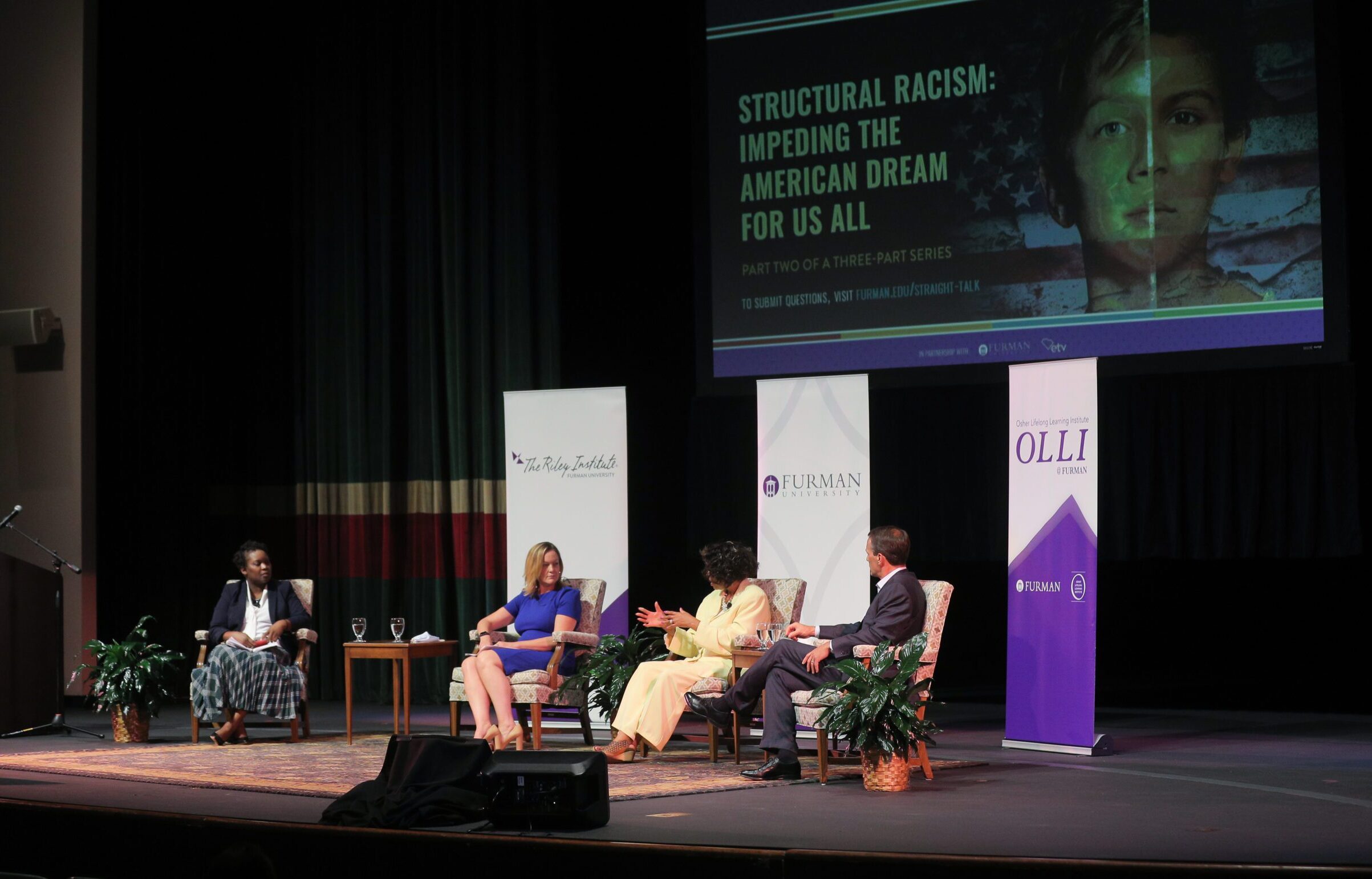Structural Racism: It’s Real, It Matters, and Why Change Can Happen Now
Presented by the Riley Institute and Osher Lifelong Learning Institute in partnership with South Carolina ETV
2020 was a watershed year for race relations in the United States. The murder of George Floyd at the hands of police officer Derek Chauvin and the killings of multiple unarmed Black Americans brought people of all races to the streets to protest against police brutality and racial violence and to remind us that even if historically they have been viewed as ‘less than,’ black lives do matter. At the same time, a global pandemic that has disproportionately impacted Black people, Indigenous people, and people of color caused many of us to examine disparities within healthcare and society at large. Combined, these moments led to honest conversations about race and racism, empathetic and sometimes angry social media exchanges, and earnest questions of what can be done to change a system that clearly isn’t working for everyone.
This national reckoning has also shined a spotlight on the legacies of structural racism, which is the broad system of policies, practices, structures, and norms that perpetuate and reinforce racial inequities. Structural racism contributes to ongoing disparities not only in our criminal justice system, but also in wealth, health, housing, employment, and education.
What are the costs of racism and the benefits to us all in realizing that life is not a zero-sum game? StraightTalk 2021 explored the continued impact of structural racism in America and what we can do as a community and a country to create a more just society.
Series Details
- August 31, 2021 | Shaped by Racism: America then and now
- September 7, 2021 | Structural Racism: Impending the American dream for us all
- September 14, 2021 | Dismantling Racism: Why now is a moment for change
Session I | Shaped by Racism: America then and now
Session I Speakers
Brittany Arsiniega

Brittany Arsiniega is an assistant professor of politics and international affairs at Furman University. She is interested in law and society, especially the study of policing and immigration. Along with Professor Teresa Cosby, Arsiniega supervises student interns in The Justicia Project, a legal clinical program providing legal assistance clients on a variety of social justice-related issues. She enjoys mentoring students who are interested in law or graduate school. When she’s not working at Furman, Arsiniega practices law with Wyche, P.A. and volunteers as a member of Hispanic Alliance’s legal team. Arsiniega holds a B.A. from the University of Colorado, Boulder (with distinction) and a J.D. and Ph.D. in jurisprudence and social policy from the University of California, Berkeley (Order of the Coif).
Monica Bell

Monica Bell is an associate professor of law at Yale Law School, with a secondary appointment as an associate professor of sociology at Yale University. Her areas of research include law and sociology, law and inequality, policing and the criminal legal system, welfare and public benefits law, housing law and residential segregation, and race and the law. Bell’s scholarship aims to center the voices and experiences of people who experience exclusion through specific bodies of law and their implementation. Her scholarship has appeared or is forthcoming in the Yale Law Journal, American Journal of Sociology, NYU Law Review, Law & Society Review, Harvard Civil Rights-Civil Liberties Law Review, the Los Angeles Review of Books, The Washington Post, and The Appeal. A first-generation college graduate from Upstate South Carolina, Bell holds a B.A. from Furman University (where she was a Truman scholar), an M.Sc. from University College Dublin, a J.D. from Yale, and a Ph.D. in sociology and social policy from Harvard.
Jeffery Robinson
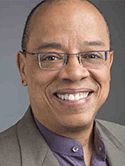
Jeffery Robinson is the founder and executive director of The Who We Are Project, which aims to become one of the central voices in correcting the American narrative on our shared history of racism. Until April 2021, Robinson was a deputy legal director and the director of the ACLU Trone Center for Justice and Equality, which houses the organization’s work on criminal justice, racial justice, and reform issues. Robinson has four decades of experience working on criminal and racial justice issues. He represented indigent clients in state and then federal court before beginning a 27-year private practice at Schroeter, Goldmark & Bender in Seattle. He has tried over 200 criminal cases to verdict and has tried more than a dozen civil cases representing plaintiffs suing corporate and government entities. A graduate of Marquette University and Harvard Law School, Robinson speaks nationally to diverse audiences on the role of race in the criminal justice system and the history of racism in America.
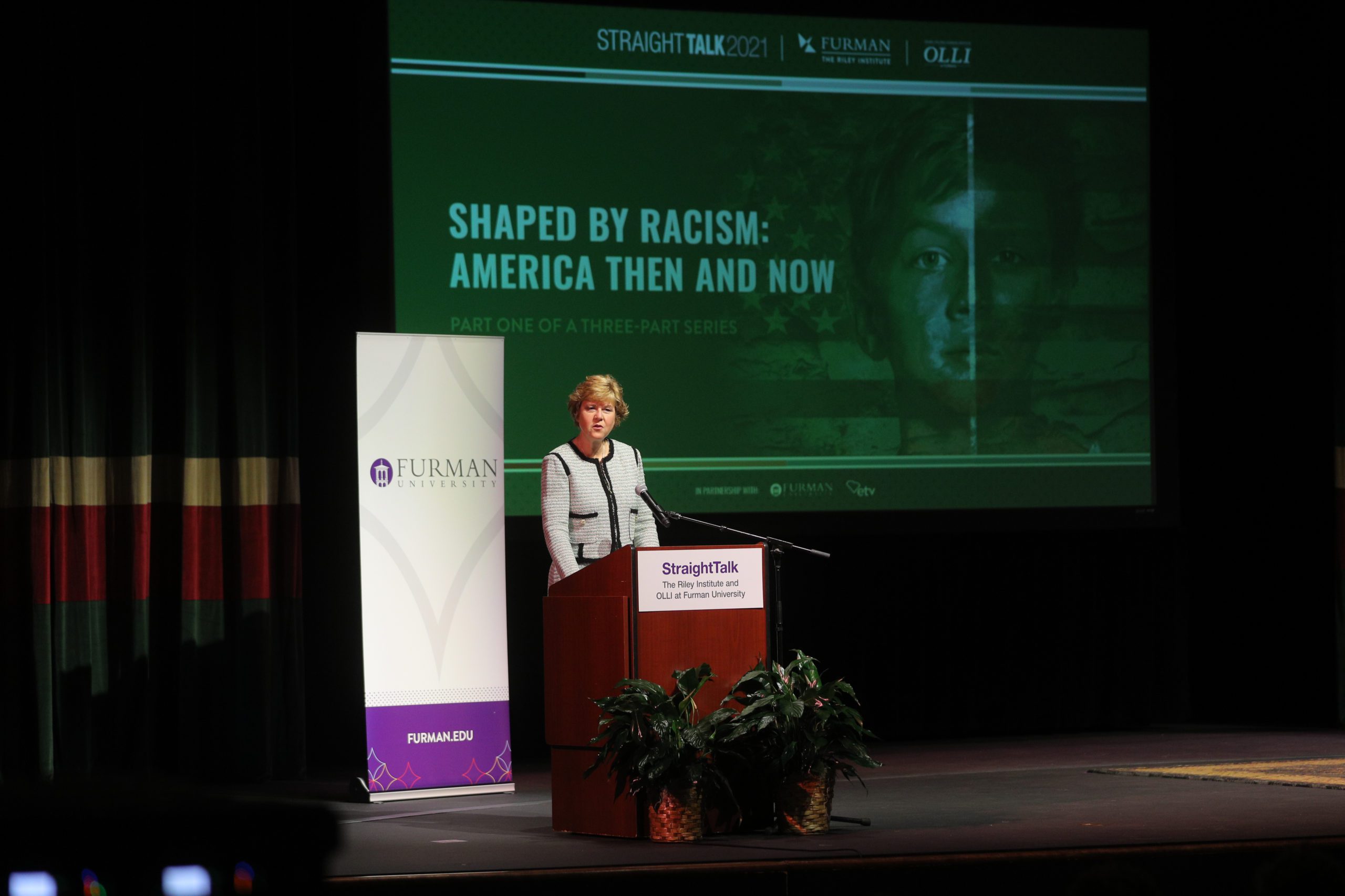
Week 1 Recap
America’s history has many stories of strong and principled leadership; however, laws and policies enacted over the last two centuries were often exclusionary. Not everyone has been equally positioned to access the full benefits of citizenship or gain wealth or power. How has structural racism shaped our country since its founding? What does the life and death of George Floyd tell us about the impact of structural racism on the individual and on policing?
Session II | Structural Racism: Impending the American dream for us all
Session II Speakers
Meghan Barp

Meghan Barp is the president and CEO of United Way of Greenville County. She joined the chapter in February 2018, having previously served as senior vice president of community impact for Greater Twin Cities United Way in Minneapolis, Minnesota. In this role, Meghan partners with civic, business, and non-profit leaders in Greenville County to better address the challenges faced by more than 50,000 living in poverty and the opportunities we have as a community to help more of our neighbors achieve prosperity. She frequently presents on philanthropy and volunteerism, and often provides expert consultation to corporations, community leaders, and nonprofits. Meghan was recognized as one of Minnesota Business Journal’s “40 under 40” in 2014, and one of Greenville Business Magazine’s “50 Most Influential” in 2018 and 2019. Meghan proudly serves on the board of directors for both the Peace Center and the Greenville Chamber of Commerce.
Thelisha Eaddy
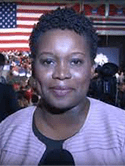
Thelisha Eaddy is a reporter for South Carolina Public Radio, covering the Midlands region of the state. Eaddy produced The Road We Trod, a one-hour special on South Carolina’s Historically Black Colleges and Universities (HBCUs) and their impact on history and the economy. Eaddy has also produced six segments of the 12-part series Sisterhood: South Carolina Suffragists, which examined how local women played critical roles in the passage of the 19th Amendment. Eaddy also serves as host of Palmetto Perspectives, a quarterly community engagement-focused series. Eaddy holds a B.A. in African American studies from the University of South Carolina.
Lillian Brock Flemming

Lillian Brock Flemming is currently Mayor Pro Tem of Greenville City Council and has served as a city council member for forty years. A native of Greenville, Flemming has been a strong advocate for affordable housing and has served on numerous boards, commissions and statewide organizations including the Municipal Association of South Carolina and Southernside Block Partnership. A retired professional employment recruiter for Greenville County Schools, she was a longtime mathematics teacher at Southside High School of International Baccalaureate Studies. She has received numerous awards and honors, and she was one the first three African American women to attend Furman University. She received a B.A. (1971) and M.A. (1974) in mathematics education from Furman and an honorary doctorate from Furman in 2014.
David Lominack
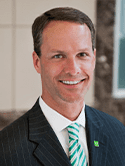
David Lominack is market president of South Carolina for TD Bank, where he is responsible for commercial banking throughout the state. Lominack joined the former Carolina First Bank in May 1997 as a management associate. Upon completion of the Management Associate program, he served in a number of roles including branch manager, commercial loan officer, Private Banking, and regional Retail Banking executive. From 2006-2010, he served as market president for the Midlands region of South Carolina. In 2010 Carolina First was acquired by TD Bank, and David returned home to take on the role of market president for the newly formed Upstate-Midlands region. He was appointed market president of South Carolina in 2015. Lominack earned a bachelor of science degree in business administration from Presbyterian College. He also is a graduate of the Stonier National Graduate School of Banking, Leadership Greenville, the Riley Institute’s Diversity Leaders Initiative, and is a Liberty Fellow. A stalwart community supporter, Lominack serves on numerous community boards. He currently serves as co-chair for Greenville County’s Racial Equity and Economic Mobility Commission (REEM), executive committee for the South Carolina Chamber of Commerce, and board member for the United Way of Greenville County. He is past chair for United Way of Greenville County, past chair of the Greenville Chamber of Commerce, and past chair of the South Carolina Bankers Association.
Heather McGhee
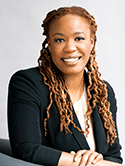
Heather McGhee designs and promotes solutions to inequality in America. Her most recent book, The Sum of Us: What Racism Costs Everyone and How We Can Prosper Together spent ten weeks on the New York Times bestseller list. Her 2020 TED talk, “Racism Has a Cost for Everyone” reached one million views in just two months online. For nearly two decades, Heather helped build the non-partisan “think and do” tank Demos, serving four years as president. An influential voice in the media and an NBC contributor, McGhee regularly appears on NBC’s Meet the Press and MSNBC’s Morning Joe, Deadline White House and All In. Her conversation on a C-SPAN program in 2016 with a white man who asked for her help to overcome his racial prejudice went viral, receiving more than 10 million views and sparking wide media coverage that included a New York Times op-ed, a New Yorker piece and a CNN town hall. She has shared her opinions, writing and research in numerous outlets, including the Washington Post, New York Times, Wall Street Journal, USA Today, Politico and National Public Radio. Currently chair of the board of Color of Change, she is a sought-after public speaker for audiences that include policymakers, philanthropists, civic organizations, students and community groups. McGhee holds a B.A. in American studies from Yale University and a J.D. from the University of California, Berkeley.
Ken Peterson

Ken Peterson is vice president for academic affairs and provost and professor of economics at Furman University. As Furman’s chief academic officer, Peterson is responsible for the faculty and related administrative departments that support all undergraduate, graduate, and continuing education programs. The former chair of the Department of Economics, Peterson’s teaching interests include microeconomic theory, urban economics, population economics, environmental economics, and research methods in economics. His research examines the extent to which property values are affected by environmental and neighborhood traits, the causes and consequences of varying social capital levels within neighborhoods, the economics of higher education, and the economics of college athletics. An outstanding teacher and mentor, Peterson was the recipient of the Alester G. Furman, Jr. and Janie Earle Furman Award for Meritorious Teaching. Peterson received his M.A. and Ph.D. in economics from the State University of New York at Stony Brook and his B.S. in economics from Iowa State University.
Dick Riley

Richard W. Riley is the former U. S. secretary of education (1993-2001) and former governor of South Carolina (1979-1987). He currently is a senior partner in the law firm of Nelson Mullins Riley & Scarborough LLP, with more than 400 attorneys in offices throughout the Carolinas and major cities elsewhere in the Southeast, as well as West Virginia, Boston and Washington, D.C. Secretary Riley also is senior partner in the law firm’s affiliate, Education Counsel, which specializes in education advocacy, policy, strategy and law. He is the recipient of honorary degrees from universities and colleges in the United States and abroad, as well as numerous education and other public service awards. In 2009, TIME Magazine named him one of America’s Top 10 Best Cabinet Members and in 2010 he was inducted into the South Carolina Hall of Fame. Secretary Riley earned his bachelor’s degree, cum laude, in political science from Furman University in 1954 and received a J.D. from the University of South Carolina School of Law in 1959.
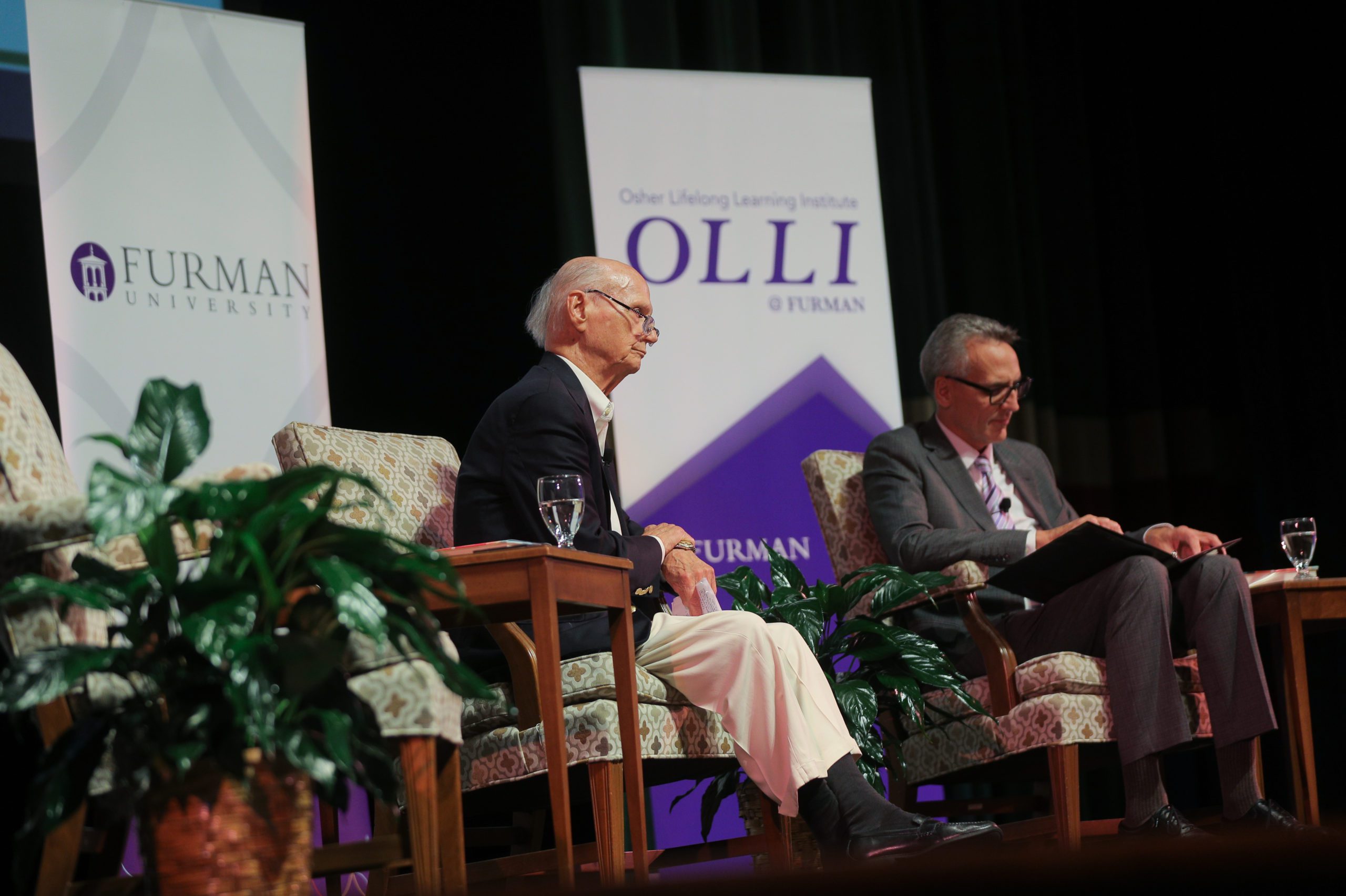
Week 2 Recap
Our most vexing public problems — economic inequality, loss of public goods, rising debt, and collapsing infrastructure — are tied to systemic racism. The American Dream eludes many Americans. Some of today’s battle is rooted in the fear that progress for some must come at the expense of others. What if righting racial inequities in home ownership, neighborhood development, education, health, and employment opportunities isn’t really a zero-sum game, but rather yields benefits for all people? What is the best way forward if we are to prosper together?
Session III | Dismantling Racism: Why now is a moment for change
Session III Speakers
Angela Glover Blackwell
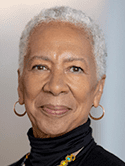
Angela Glover Blackwell, founder in residence at PolicyLink, started the organization in 1999 with a mission of advancing racial and economic equity for all. Through her writing, speaking, and leadership, Blackwell has helped to grow and define a national equity movement focused on innovating and improving public policy with a wide range of partners to ensure access and opportunity for all low-income people and communities of color – particularly in the areas of building an equitable economy, health, housing, transportation, infrastructure, and arts and culture. Angela is a frequent commentator for some of the nation’s top news organizations, including The New York Times, HuffPost, Washington Post, Salon, and CNN, and was most recently published in the Stanford Social Innovation Review. She has appeared regularly on such programs as public radio’s Marketplace, The Tavis Smiley Show, Nightline, and PBS’s Now and PBS’s NewsHour. A co-author of Uncommon Common Ground: Race and America’s Future (W.W. Norton & Co., 2010), she earned a B.A. from Howard University and a J.D. from the University of California, Berkeley.
Russell Booker
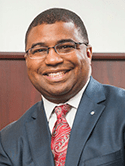
Russell Booker is executive director of the Spartanburg Academic Movement, a partnership bringing education, business, government, and other groups together to improve the quality of education of all children. He also is the diversity and economic inclusion consultant for the Spartanburg Area Chamber of Commerce. Until his retirement in 2020, he served as superintendent of Spartanburg County School District 7, where he led a total restructuring of the district, a complete digital immersion and a bold comprehensive capital plan. In 2013, Booker received the Whitney M. Young, Jr. Humanitarian Award from the Urban League of the Upstate, and in 2020, he received the Order of the Palmetto, South Carolina’s highest civilian honor. Booker received his B.S. from Wingate University and his Ph.D. from the University of South Carolina.
Gavin Jackson

Gavin Jackson hosts South Carolina ETV’s weekly public affairs show This Week in South Carolina and the weekly South Carolina Lede podcast. A 2008 graduate of Kent State University, Jackson has worked at newspapers in Ohio, Louisiana, and South Carolina. In South Carolina, he worked at the Florence Morning News and Charleston Post and Courier, where he was on the Statehouse bureau team from 2015-2017, covering the presidential primaries, Gov. Nikki Haley, and the state legislature.
John Simpkins
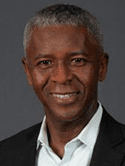
John Simpkins is president of MDC, a non-profit organization that equips Southern leaders, institutions, and communities to improve economic mobility and advance equity. It brings together foundations, nonprofits, and leaders from government, business, and the grassroots to illuminate data that highlight deeply rooted Southern challenges and help them find systemic, local solutions. Before coming to MDC in 2020, Simpkins was vice president of the Aspen Global Leadership Network at the Aspen Institute, where he mobilized the more than 3,000 Fellows around the world to respond to the COVID-19 pandemic and its attendant economic effects. A constitutional scholar and practicing attorney, Simpkins served in the Obama Administration as deputy general counsel for the White House Office of Management and Budget and general counsel for the U.S. Agency for International Development. Simpkins received his A.B. in government from Harvard College and a J.D. and LL.M. in international and comparative law from Duke University School of Law.
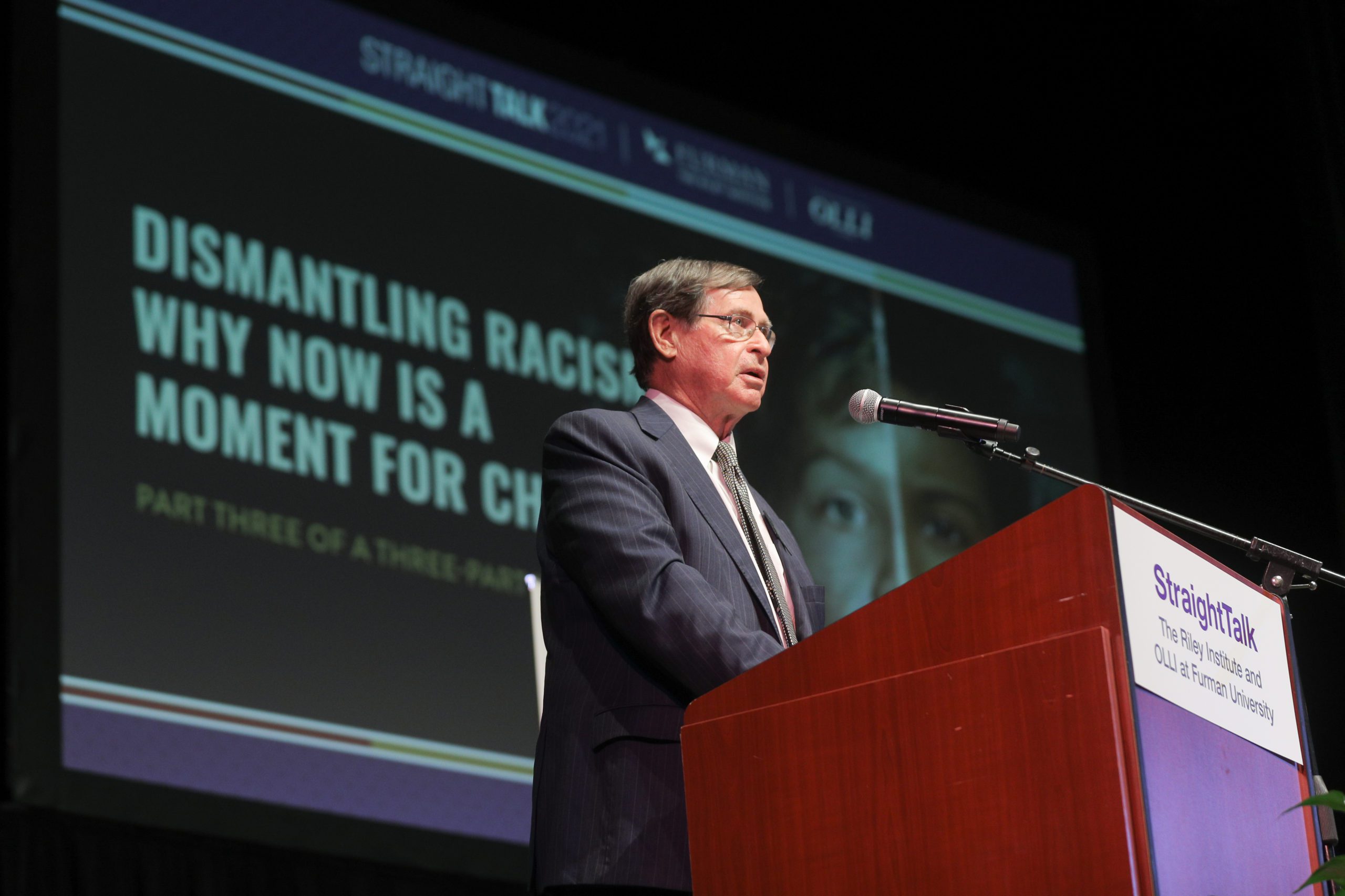
Week 3 Recap
Racism and racial injustice are often in headlines and spur frequent protests. With heightened attention to these complex issues and the promise of federal investment in communities as they recover from losses due to COVID-19, now is a pivotal moment. How might these funds and other measures be employed to counteract the exacerbation of racial inequities during the pandemic? What can local leaders do to build up communities and drive equitable outcomes? What is our hope in this moment?
